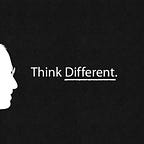Kings, gods and powers.
The trouble of Ezeulu, the Ulu priest in Chinua Achebe’s Arrow of god, began the night he sought to test the extent of his powers.
“What kind of power was it if everybody knew that it would never be used? Better to say that it was not there, that it was no more than the power in the anus of the proud dog who tried to put out a furnace with his puny fart”, he pondered.
He grew impatient with the mere symbolism of powers he supposedly had but never put to use. And so he plotted, secretly in his heart, to bend the heart and knees of the people with the full exertion of his priestly powers. He refused to set in motion the spiritual rites that precede harvest — thus placing the people at the risk of hunger as, consequentially, they could not fetch their new yams from the farm.
Ezeulu pit himself against the pull of the stomach and the basic instinct of survival in an avoidable, and needless, battle. He lost. An irreversible defeat that marked the end of his god. The people turned away from him and adopted the Christian god who had no problems blessing their harvest and granting them the permission to till their lands.
Ezeulu forgot that men created god and gave it its powers, not the other way round. It was the people of the six villages of Umuaro who came together to carve Ulu and made it chief amongst their other gods. He was elected and could be impeached.
Without their deference and obeisance, Ulu was nothing more than a statue. And there are trees remaining in the forest to carve new status. Humans can make a choice and alter it — gods are unmoving totems.
Perhaps this tragic fall of Ezeulu, though fictitious, formed part of the reasons young kings receive education on the scale of their powers but why it must never be used. At least not arbitrarily or in a vanity ego contest.
Random musing.
